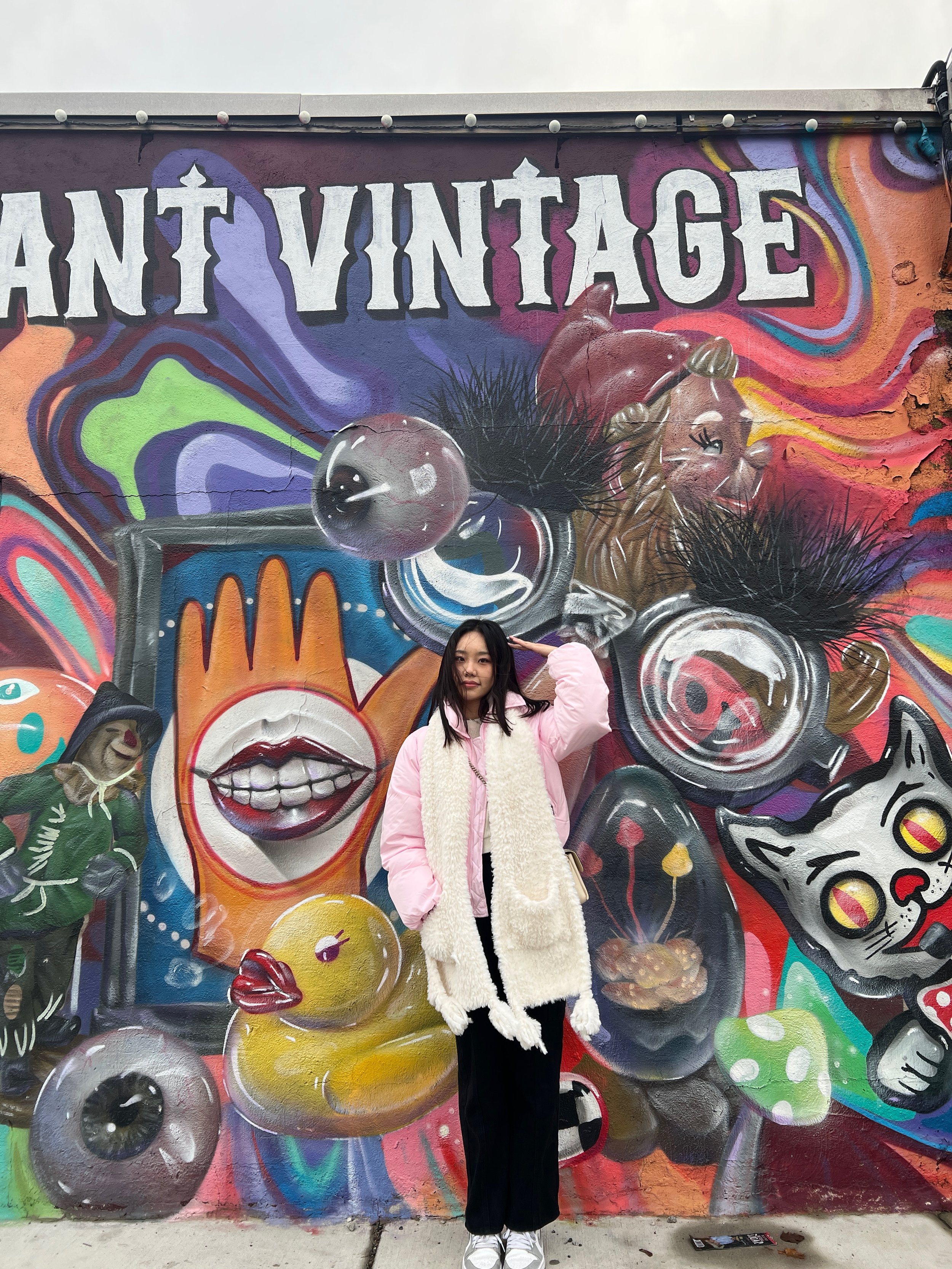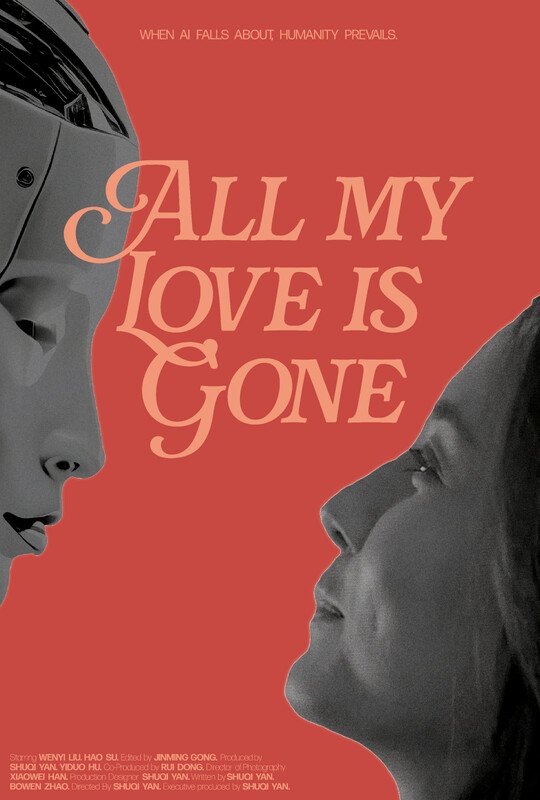From China to LA, meet the upcoming Shuqi Yan
Welcome Shuqi, we are very excited to have you today with us to discuss about your work.
Who is Shuqi Yan and how did the passion for filmmaking begin?
Shuqi Yan, born in 2000 in Hefei, Anhui Province, China, found her calling in filmmaking at a tender age. Introduced to the enchanting world of cinema through "The Sound of Music" at three, I was immediately captivated by its storytelling magic.
During my university years in Beijing, I embarked on my filmmaking journey, directing my inaugural short film, "All My Love is Gone." This creative endeavor affirmed my conviction to pursue filmmaking as a career.
Now, enrolled at the New York Film Academy's esteemed Los Angeles campus, I'm dedicated to refining my craft. With a fervent commitment to storytelling, I eagerly immerse myself in every aspect of the filmmaking process, from scriptwriting to post-production. My journey is not just about learning; it's about embracing the transformative power of cinema and shaping my voice as a filmmaker.
Can you tell us a bit about your previous work?
In fact, "All My Love is Gone" is my first short film, completed in 2023, and submitted to film festivals. Winning this award is a tremendous honor for me, and I'm grateful to AIMAFF. I'll continue to strive for excellence and bring more quality works in the future!
What inspired the storyline of "All My Love is Gone"? Can you share any personal experiences or anecdotes that influenced the creation of this film?
Due to my personal growth experiences, I've observed many couples lacking constructive communication, leading to arguments and breakups. This inspired the idea of using AI to replace human partners. However, ultimately, I aim to convey that a cold machine is merely composed of components and programs, devoid of genuine emotions. My plea is for couples to prioritize communication and consideration for each other, as it's essential for nurturing lasting relationships. Robots can never substitute for the intrinsic emotional needs of humanity.
CONVERSATION ABOUT: All My Love is Gone
How do you think your Chinese background and upbringing influenced your perspective as a filmmaker? Did you encounter any cultural challenges or differences while studying and working in both China and the United States?
Growing up in China has allowed me to recognize some prevalent social issues in our country and has enriched me with the influence of our five-thousand-year-old history. Some deeply ingrained ideologies provide me with subjective perspectives on filmmaking. However, studying in the United States exposes me to cultural influences from the Western society, which, when merged, diversify my thoughts on issues and render them more objective. In my filmmaking endeavors, I aspire to effectively express Asian elements through movies and introduce them to the Western film society. The challenge lies in the disparity of upbringing, where certain social phenomena and cultural aspects in China may not be readily understood in the United States. As I am studying filmmaking here, I aim to adapt to local customs.
I hope for mutual understanding in conveying my intended messages, hence, the need to adjust the script according to the local audience's comprehension.
What were some of the technical challenges you faced during the production of "All My Love is Gone"?
It's probably about the aspect of the film's soundtrack. Initially, the music I selected required purchasing rights, but my budget was limited. Fortunately, through my boyfriend, I met an independent musician who was enthusiastic about my short film. After some communication, he agreed to create original music for "All My Love is Gone" free of charge. I'm extremely grateful to him for bringing my film to life!
How would you describe your directorial style, particularly in relation to "All My Love is Gone"? Were there any filmmakers or cinematic movements that influenced your approach to storytelling in this film?
I draw inspiration from the stylistic endings of Disney animated films and the poignant dance scene between Jo and Laurie in "Little Women." These sources contribute to my directorial approach by infusing elements of whimsy and emotional depth into "All My Love is Gone." Just as Disney films often conclude with a sense of hope and fulfillment, and the dance scene in "Little Women" portrays a moment of unspoken connection, I aim to evoke similar feelings of nostalgia, romance, and introspection in my storytelling. These influences guide me in creating a cinematic experience that resonates with the audience on both an emotional and aesthetic level.
What do you hope audiences will take away and what emotions or reactions do you aim to evoke through your storytelling?
Every reader has their own Hamlet." I believe everyone's interpretation may differ. However, what I hope viewers can reflect on after watching is the areas where they or their partners may have fallen short in past or present emotional experiences. I hope they can take the time to have deep discussions with their significant others, encourage each other, strive for improvement, and work on nurturing their relationships, rather than succumbing to the fast-paced nature of modern life.
What was the most memorable or challenging scene to shoot in "All My Love is Gone"? Can you share any behind-the-scenes anecdotes or funny moments from the filming process?
For me, the most challenging scene was the intimate scene in the bedroom, which occurs in the 11th scene. This required both actors to quickly familiarize themselves with the emotions, as it's a crucial scene and one of the highlights of the short film. It needed to convey a sense of intimacy built over many years and the feeling of rekindled connection. The actors' ability to truly listen, observe, and feel played a significant role, and I'm ultimately satisfied with the outcome. On the lighter side, the seventh sequence within the montage provided some humorous moments. The interactions among the actors infused the atmosphere with liveliness, featuring spontaneous dancing and costume changes.
Can you tease any upcoming projects or themes you're excited to explore in your future works?
Afterward, I directed two more short films, "A Better Life" and "Joy." Both films narrate stories of different women, reflecting themes I aim to convey. One revolves around a mother's journey to provide a "better life" for her child. The other portrays a woman breaking free from male-dominated societal norms to courageously pursue her dreams. Stay tuned for more updates!
This marks the conclusion of the interview featuring our esteemed artist, Shuqi Yan. Our community is growing steadily, with a continuous influx of skilled filmmakers and screenwriters joining us. Explore our other interviews, and consider scheduling one for yourself to showcase your creative endeavors.
To publish an interview simply submit on the ‘‘INTERVIEW OF YOUR FILM’’ category on our Filmfreeway page.








